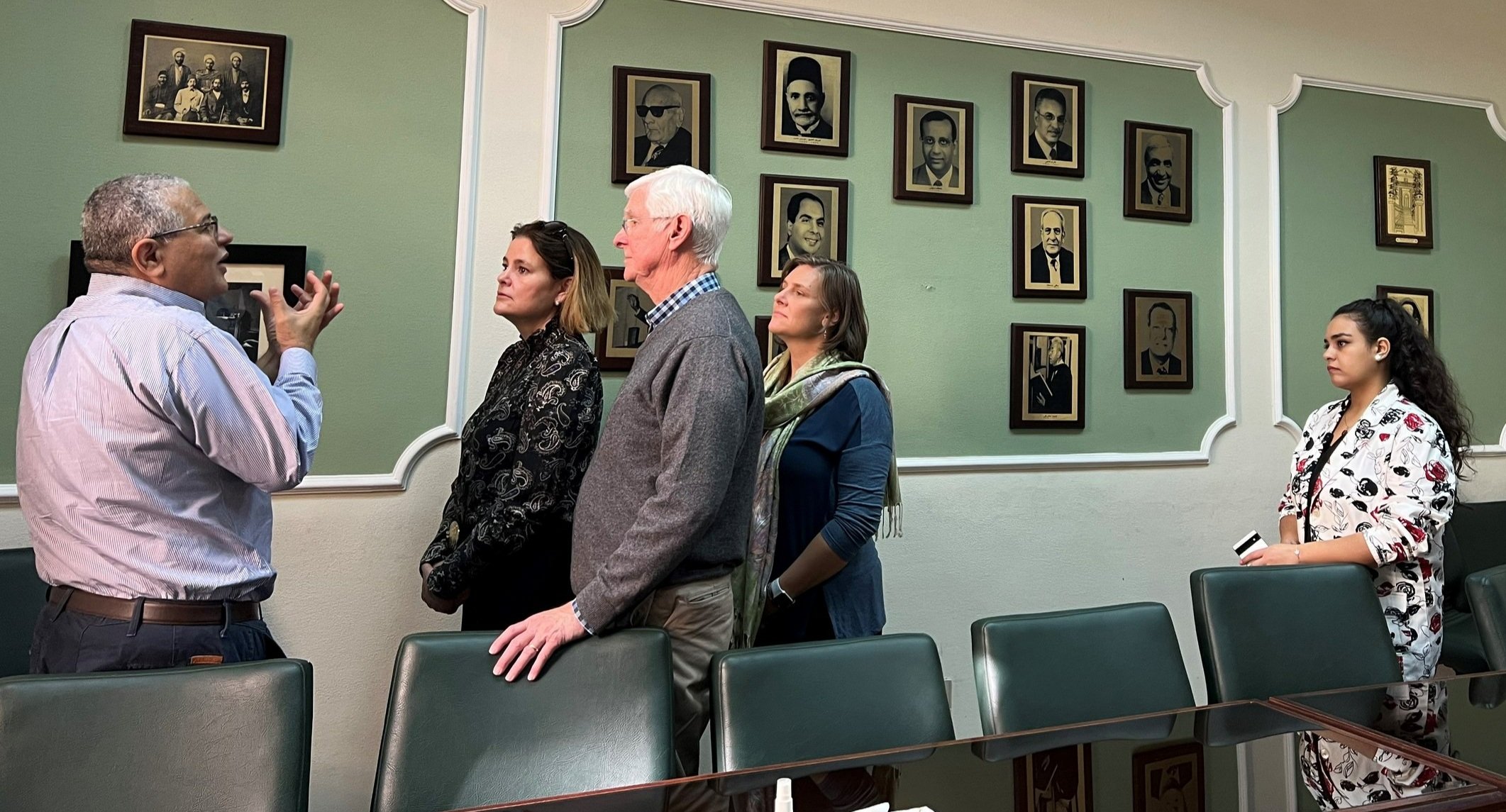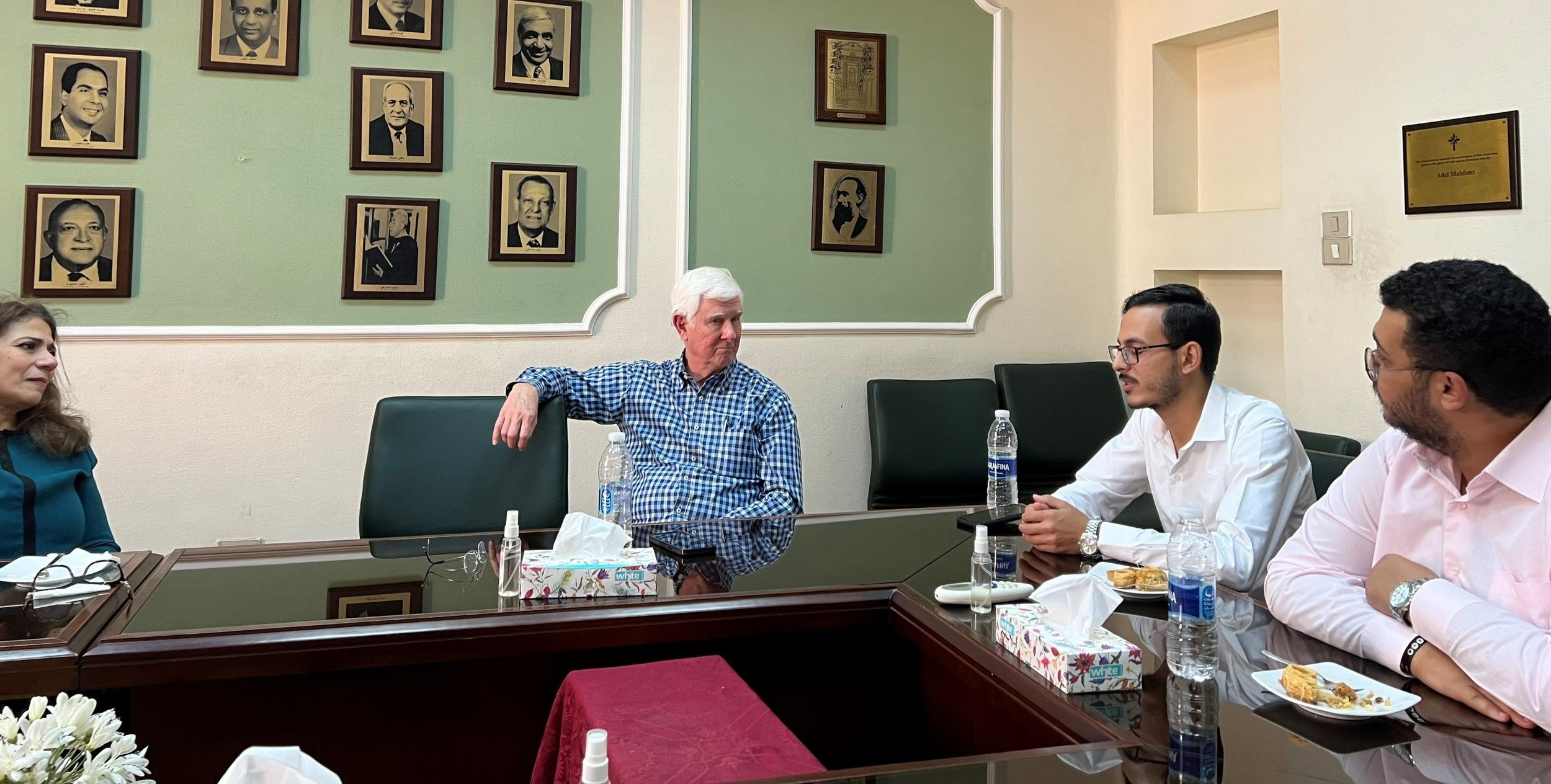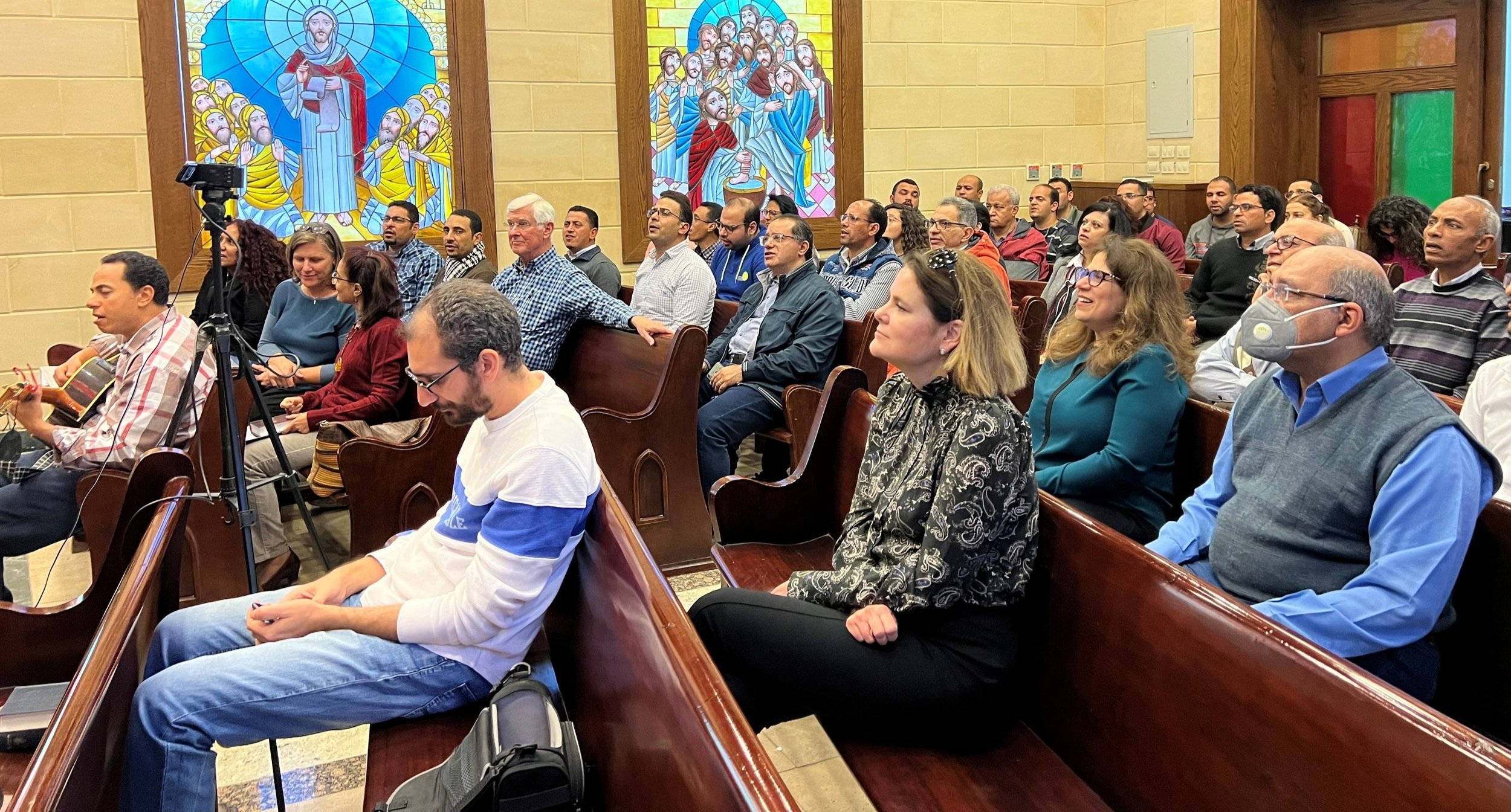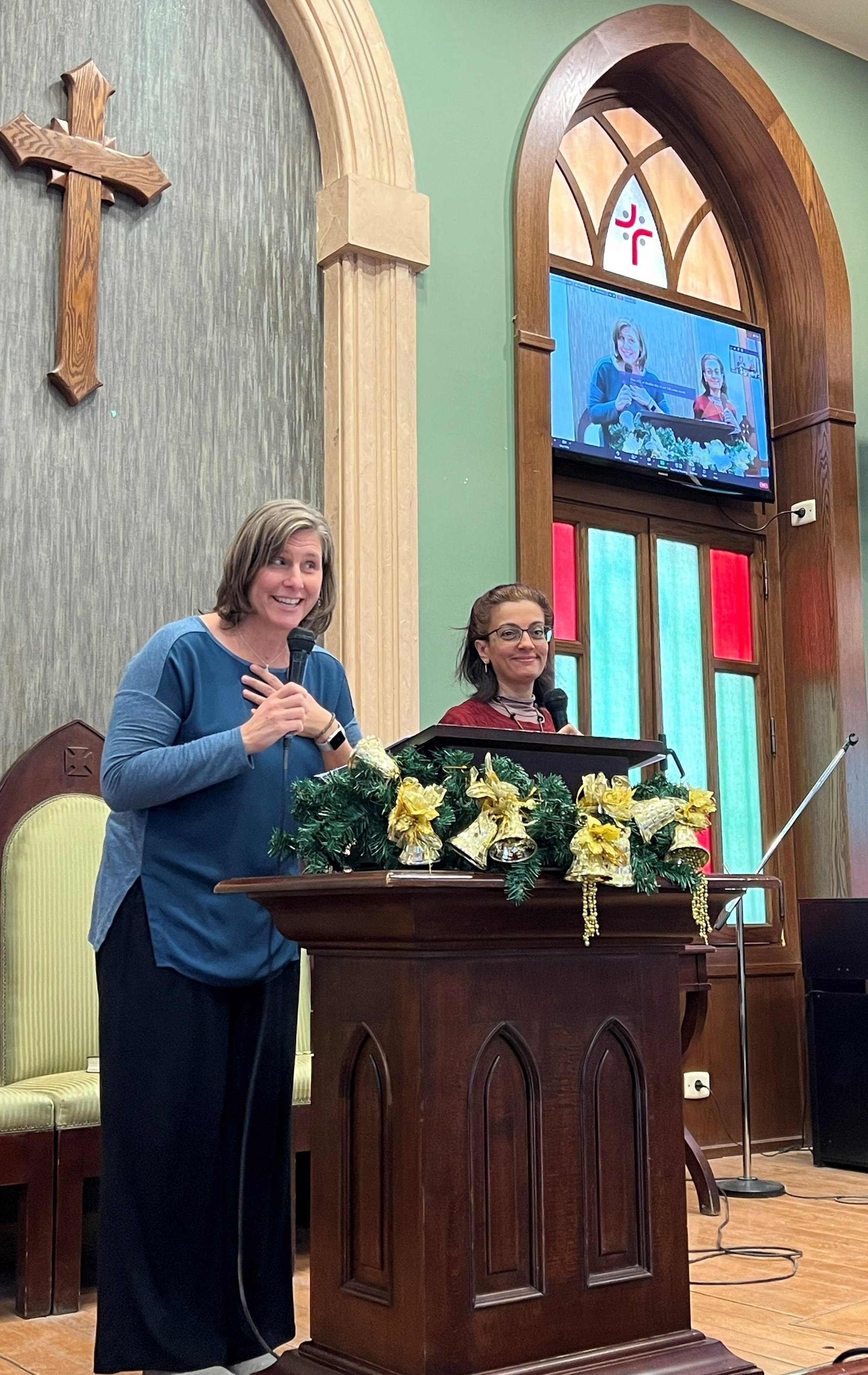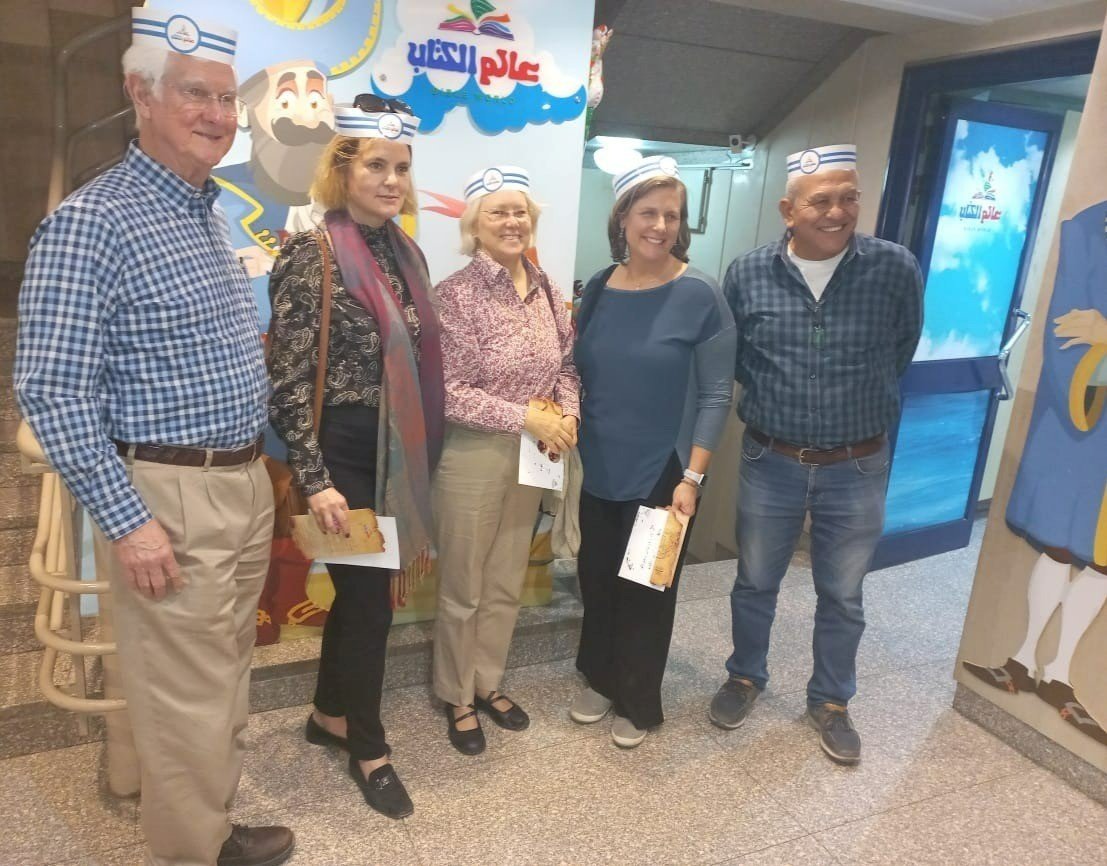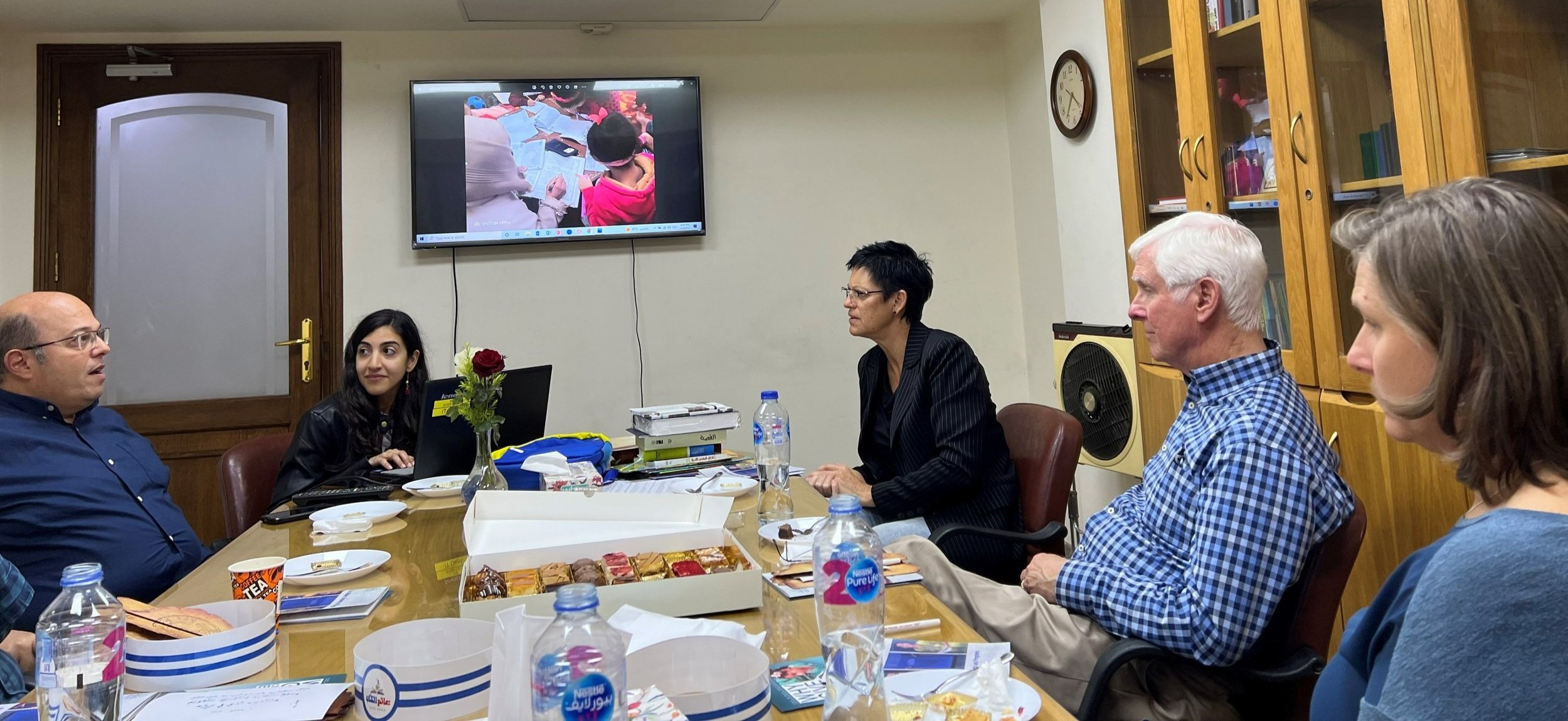Egypt #2: Light for the World from Two Long-Time Egyptian Ministries
Light for the World from Two Long-Time Egyptian Ministries
by Evangeline Paschal, National Presbyterian Church, Washington, DC
Our day began with an extended visit to the Evangelical Theological Seminary of Cairo (ETSC). The seminary’s gated compound is nestled off a busy street thronged with migrants in the queue for the visa office for Egypt’s international residents next door. The dominant presence of the visa office is a marked contrast to the discreet and compact location of the seminary, and this contrast is emblematic of the quiet but powerful role that the seminary plays in Egypt and around the region.
Entering the seminary’s main building, which dates from the early 20th century, we found ourselves in the main hall, which is lined with photographs depicting the history of the seminary. We learned how missionaries founded the seminary in the 1860s when Egypt was part of the Ottoman Empire. At the time, the empire would not grant Christian missionaries land for their schools, so the earliest classes were held on a houseboat as it traveled up and down the Nile River. After being led by foreign missionaries for over 60 years, the first Egyptian seminary president was installed in the 1930s. The brief history lesson gave us a good grounding for understanding the context in which the seminary emerged as the leading Protestant seminary in Egypt. But once we stepped into the main conference room for coffee and delicious Middle Eastern pastries, the more fascinating story of the seminary’s current role emerged, as explained to us by President Dr. Hani Hanna, Professor of Mission, Tharwat Wahba, and development officer Mariam Hanna. The seminary is the only place in Egypt that trains Presbyterian pastors (as well as students from other Christian denominations), making it the wellspring of pastoral leadership at the 450 Presbyterian churches in the country, which is the largest Protestant/Evangelical presence in the Middle East. Over the past 20 years, it has grown from 70 to 620 students and now sends pastors not only to churches in Egypt but throughout the Arab world, U.S., and Europe. But coupled with this rapid growth have come challenges, including the emigration of many Christians outside the Middle East, the rise of atheism in the region, and the need for sound theological guidance in some of the newer, emerging churches. To address these challenges, the seminary encourages churches to couple theology and worship with social development, both to heal the effect of fundamentalism and to build bridges to previously unserved populations.
Afterward, we joined the rest of the seminary at the daily chapel, where our own Anne Keener delivered the message. In an example of God’s perfect timing, Anne’s message resonated fully with our morning conversation, focusing on how through God’s grace there is no “us” that excludes “them,” but that we are all part of the communal “us” covered by God’s love, which allows us to extend grace and compassion to those who are not part of our normal community.
After a delicious roast chicken lunch in the cafeteria, we took a brief tour, then said our goodbyes and headed to our next stop: the Bible Society of Egypt (BSOE).
Like ETSC, BSOE’s roots date back to the Victorian era. It has since grown to be the largest Arabic publisher of Bibles and other Bible-based literature. Yet our visit started not with the written word, but with a new, interactive program for children called Bible World. In Bible World, kids navigate through various stations in several rooms, solving puzzles and completing tasks that illustrate for them the reliability of the Bible and of translations (answering Muslim critiques). It’s the Society’s latest initiative for introducing the next generation to the trustworthiness of the Bible. After donning silly hats and successfully completing our Bible World journey, we sat down with Lois Nagieb, the Society’s outreach coordinator, and indulged in an afternoon round of delicious pastries. Lois told us about the challenges of biblical literacy in a country where nearly one-third of the residents live below the poverty line. To address these challenges, the Society has introduced its Bible in Every Home program. Now in its third year, this program provides deeply discounted Bibles throughout Egypt. The Society is also working on a new translation of the Bible into colloquial Egyptian Arabic, which will increase comprehension compared to the standard Van Dyke Arabic translation, which dates from 1865 and uses the beautiful but difficult classical Arabic. Not only will this new translation enhance biblical literacy throughout Egypt, but, since Egypt is the entertainment hub for the Middle East, it will also reach parts of the Arabic-speaking world far beyond the country’s borders.
By the time we said our goodbyes at the Bible Society, it was early evening. Our bellies were still full of the hearty lunch and yummy sweets, but our hearts were full of encouragement and prayer for our seminary and society friends and the ambitious goals that they are striving toward. It was a good reminder of the importance of Christian community and outreach as a way of expressing God’s love for our world.

